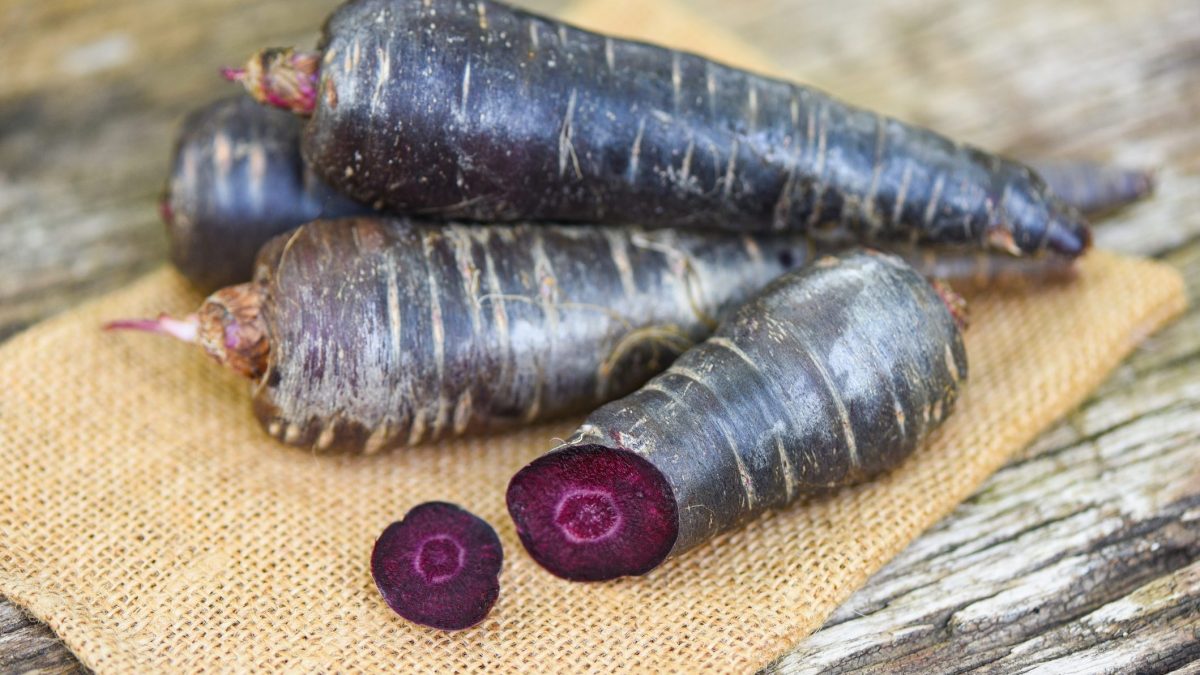
Carrots are root vegetables known to be crunchy, delicious, and very nutritious and are particularly a good source of fiber, beta-carotene, potassium, vitamin K1, and antioxidants. Carrots are also known to come in a variety of colors including orange, white, yellow, red, and purple — which is going to be the center of this piece.
Although, when we talk about carrots, the one that pops up in our heads is the usual orange vegetable, but originally, carrots were first purple or white and the modern orange carrot likely originated from a new breed of yellow carrots — which originated as a result of genetic mutation. Red and purple carrots are considered Eastern varieties, while yellow, orange or white carrots are referred to as Western varieties. The eastern style carrots have been largely replaced by the orange carrots commonly found in grocery stores today.

This piece confirms the benefits of purple carrots and gives you tips on how to incorporate this rich vegetable into your diet.
How Uniquely Nutritious Is The Purple Carrot?
Carrots, irrespective of their color, are enriched with various nutrients like potassium, fiber, vitamin C, A, and specific B vitamins, and manganese. They are also relatively low in calories — 128g of raw carrots is just about 52cal. So, what exactly makes purple carrots uniquely nutritious?
- Their antioxidants anthocyanins: Anthocyanins, belonging to the polyphenol family of antioxidants, are found in purple vegetables and fruits such as grapes, purple potatoes, blackberries, purple cabbage, and the purple carrots, and these antioxidants helps protect the body from oxidative stress — an imbalance between reactive molecules called free radicals and antioxidants in the body, which is associated with health problems such as cancer, mental decline, heart disease and aging.

- Aids weight loss: Study shows that people who eat more vegetables or vegetable-rich diets tend to weigh less than people who eat fewer vegetables because vegetables like carrots that are nutritious yet low in calories are taken as a highly friendly weight loss diet. Purple carrots are an excellent source of water-soluble dietary fiber and, like peptide YY, help reduce appetite and food intake by increasing the hormones that create a feeling of fullness.

- Can be easily added to diet: Purple carrots are not just known to be nutritious and tasty vegetables, but are also known to be versatile in the sense that they can be used in various kinds of dishes. They can be chopped, grated or shaved and added to salads, can be added to smoothies and juices, can be sliced and eaten with tasty dips or can be sliced and cooked and added to homemade food — especially in stir-fries, and many more recipes. It's a really flexible vegetable.
Conclusion
Purple carrots contain rich vitamins and minerals and are particularly known for the many benefits it has to offer your health — aiding weight loss, reducing inflammation and risk of specific cancers and a general improvement on your health. It also adds color — because of its bright color, and flavor to any dish it's added to.
;Resize,width=767;)
